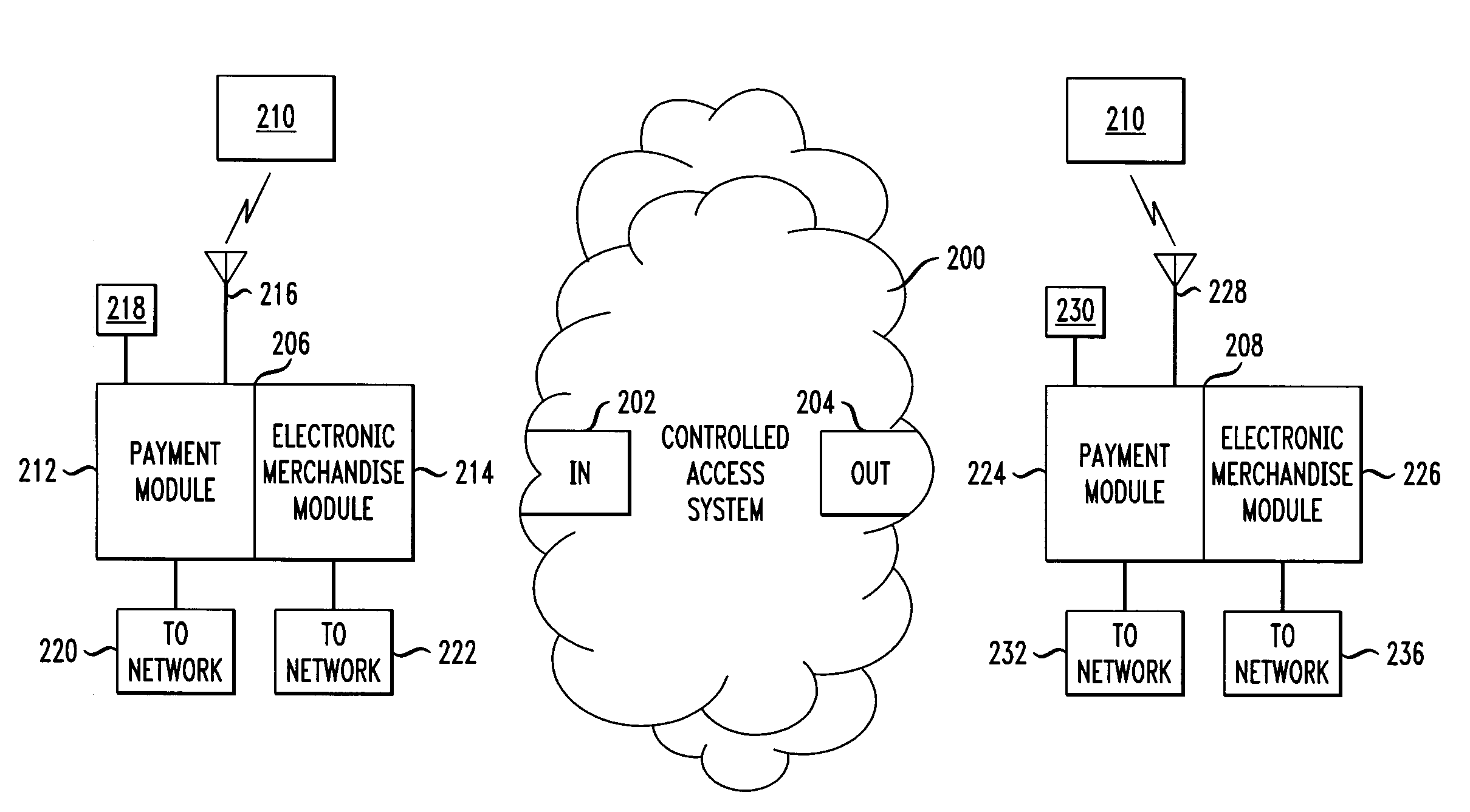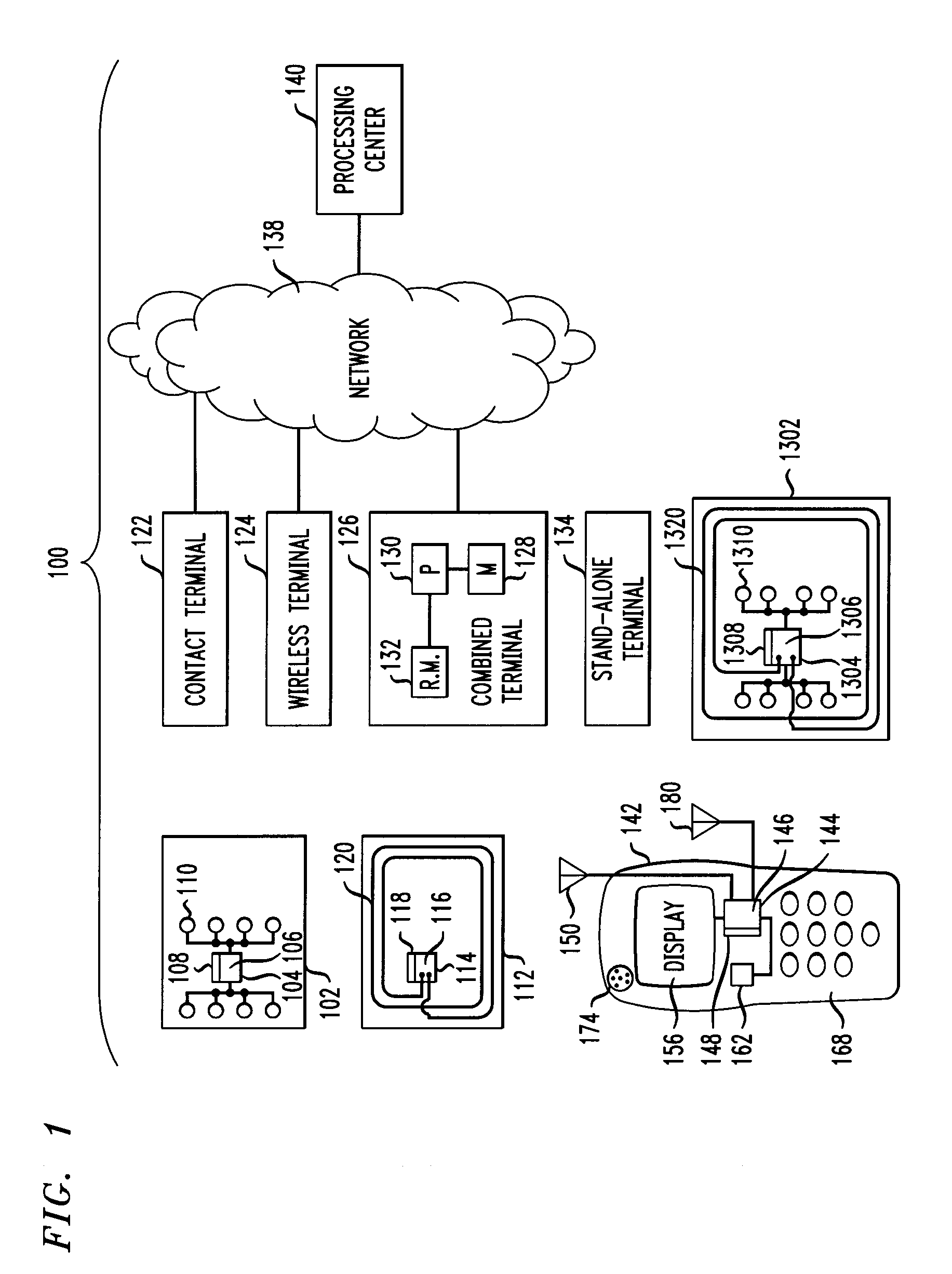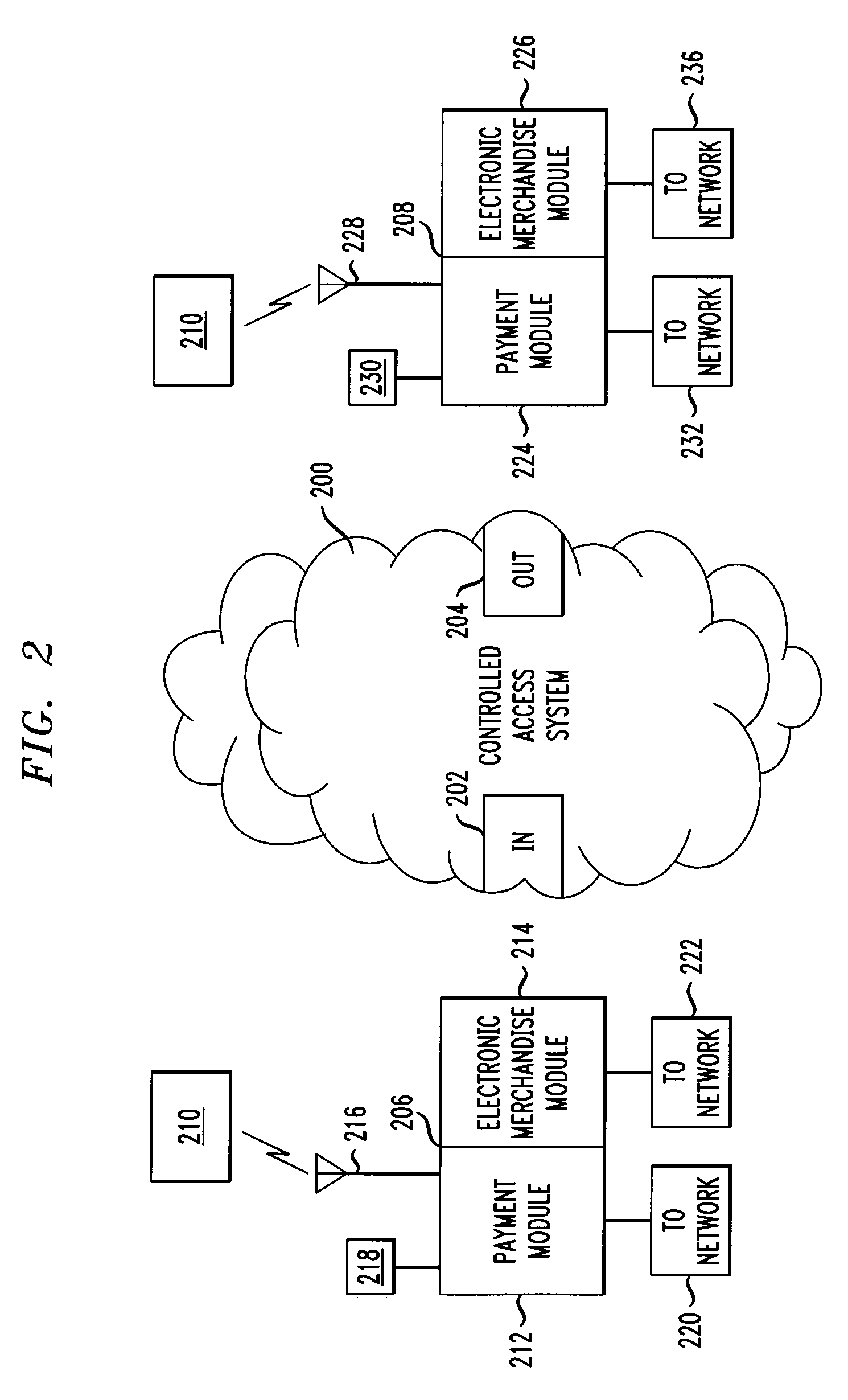Apparatus and method for integrated payment and electronic merchandise transfer
a technology of electronic merchandise and integrated payment, applied in the field of electronic and computer arts, can solve the problems of inefficient use of separate and unlinked payment and e-merchandising infrastructures and transactions in prior art techniques
- Summary
- Abstract
- Description
- Claims
- Application Information
AI Technical Summary
Benefits of technology
Problems solved by technology
Method used
Image
Examples
first embodiment
[0390]By way of review, FIG. 3 and its accompanying text describe security processing. In the embodiment shown in FIG. 3, the e-merchandise (and its associated MAC calculation 310) includes the PAN and ATC, these are transmitted to the card along with the rest of the e-merchandise, and the card processing verifies that these values match the card's current values 312 and refuses to store the data if they are not correct, at 316.
second embodiment
[0391]FIG. 7 and its accompanying text describe security processing. In the embodiment shown in FIG. 7, the e-merchandise MAC calculation includes the Card ID, ATC and RND as at 709, however these are not transmitted to the card (the Card ID field is not included at all and the ATC and RND fields are replaced with FFs), the card does not check the ATC and RND fields but instead just stores the values it already knows, as at 715, with the data. If the terminal and card used different values because they had been interfered with then the verification of the MAC will fail when the data is read.
[0392]In another embodiment, techniques similar to those of FIG. 7 are employed, with certain differences. First, the ATC is not used as it is not needed when the RND is available; second, additional transaction and / or context data is included to gain additional security benefits (e.g. the amount and so on); and third, rather than needing to store (and later return) all these many data items, the...
PUM
 Login to View More
Login to View More Abstract
Description
Claims
Application Information
 Login to View More
Login to View More - R&D
- Intellectual Property
- Life Sciences
- Materials
- Tech Scout
- Unparalleled Data Quality
- Higher Quality Content
- 60% Fewer Hallucinations
Browse by: Latest US Patents, China's latest patents, Technical Efficacy Thesaurus, Application Domain, Technology Topic, Popular Technical Reports.
© 2025 PatSnap. All rights reserved.Legal|Privacy policy|Modern Slavery Act Transparency Statement|Sitemap|About US| Contact US: help@patsnap.com



